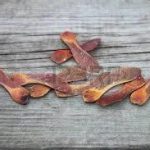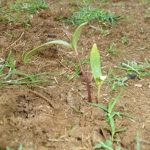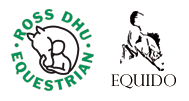The Dangers of the Sycamore to your horse
 Sycamore tree is a deciduous tree that belongs to the plane-tree family. It originates from Europe, but it can be found around the world today, including the UK. It usually grows near the streams, river banks, lakes and in woodlands, places where we all like to going riding with our horses.
Sycamore tree is a deciduous tree that belongs to the plane-tree family. It originates from Europe, but it can be found around the world today, including the UK. It usually grows near the streams, river banks, lakes and in woodlands, places where we all like to going riding with our horses.
Some sycamore tree seeds, leaves or seedlings, carry a toxin which can cause a severe and life-threatening disorder for horses, known as Atypical Myopathy. Atypical Myopathy is fatal to horses and is caused by eating Sycamore seeds (the helicopters shaped seeds in the photo left) or seedlings. The disease results in muscle damage and particularly affects the muscles that enable the horse to stand and breathe. Horses with the disease may develop a range of signs, with the initial symptoms often being lethargy, a quiet demeanour or reluctance to work or play.
The disease is more common in the autumn (typically October and November) and often occurs as an outbreak when large numbers of seeds are falling. If you are mindful of where you are riding your horse, where it grazes and plays, you can avoid this disease and with prompt, aggressive treatment ensuring infected horses can recover very quickly. However, even with intensive veterinary treatment, severely affected horses may die. Raise Awareness of this disease.
 At Ross Dhu Equestrian, we take Atypical Myopathy very seriously and our surrounding land does not house any Sycamore trees and any that seed (photo left) in our woodland are cut down as pests as they are not native to Scotland. We ask you as a horse owner to be as vigilant with your horse and its surrounding area, to ensure the welfare of horses. “We ask you to talk about Atypical Myopathy with fellow horse friends, to ensure awareness is increased and the signs to watch out for.
At Ross Dhu Equestrian, we take Atypical Myopathy very seriously and our surrounding land does not house any Sycamore trees and any that seed (photo left) in our woodland are cut down as pests as they are not native to Scotland. We ask you as a horse owner to be as vigilant with your horse and its surrounding area, to ensure the welfare of horses. “We ask you to talk about Atypical Myopathy with fellow horse friends, to ensure awareness is increased and the signs to watch out for.
Atypical Myopathy is avoidable, people just need to know about it” Morag Higgins. If you do find Sycamore trees in your horse’s field, you can test for the toxin by sending plant samples to the comparative neuromuscular diseases laboratory at the Royal Veterinary Collage (RVC) who are now offering testing of seeds. The signs of Atypical Myopathy include:
• Depression
• Stiffness
• Reluctance to move
• Muscle tremors
• Sweating
• Weakness
• Lethargy
• Difficulty breathing
• Reluctance to work
• Red or brown urine
• Choke
• Colic
• Low head carriage
• Fast or irregular heart beat
• Sudden collapse and death
If you think your horse could have eaten sycamore seeds or seedlings and may be showing signs of Atypical Myopathy, then you must contact your vet immediately, before it’s too late.
At Ross Dhu Equestrian, www.scottishhorsehelp.co.uk , we are experienced equestrians, who care enormously about the welfare of all horses, please contact us should you have any concerns regarding a horse. For more information please feel free to call Morag on 01698 886 492 or email on contact@scottishhorsehelp.com.
